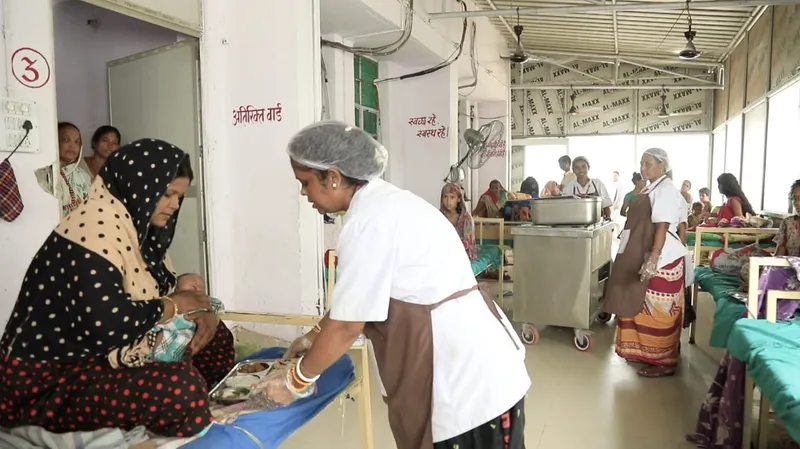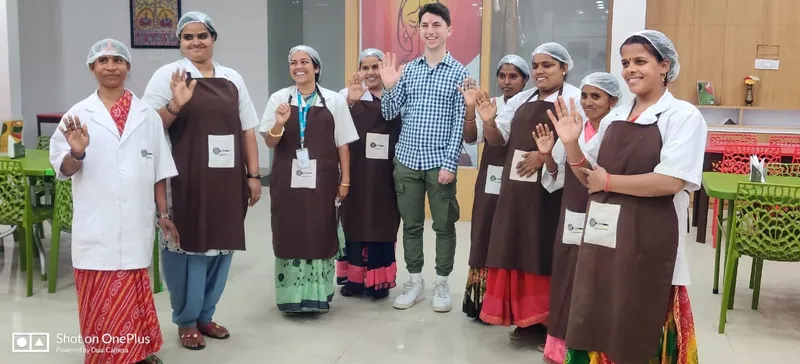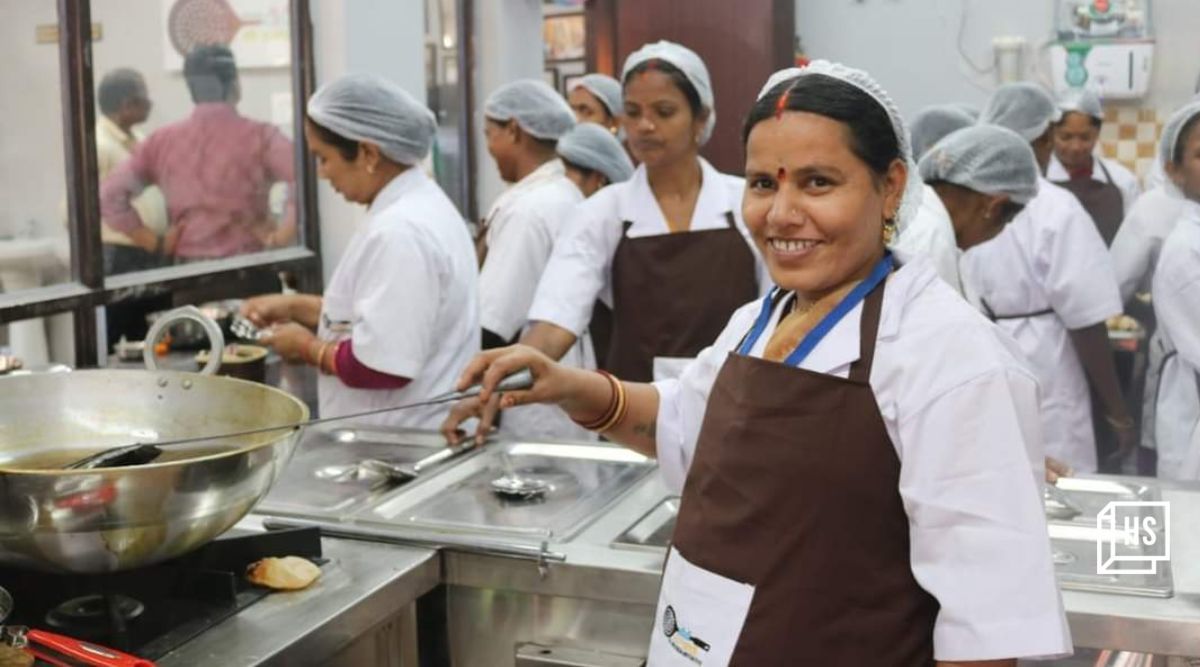Didi Ki Rasoi: How this livelihood initiative is empowering women in Bihar
Didi Ki Rasoi was started in 2018 as part of the World Bank-supported Bihar Transformative Development Project for establishing food service counters in all district and block hospitals in the state.
Every day, Renu Devi wakes up at 4 am to pack tiffins for her three children and sends them to school. She then gets ready herself and leaves her home in Nizampur village near Patna, Bihar for the RBI office 12 kilometres away where she heads the kitchen of Didi Ki Rasoi.
The kitchen prepares breakfast, lunch and dinner for all employees and visitors and serves tea twice a day to around 150 people.
Devi has her hands full on most days. Donning an apron and tying her hair in a plastic cap, she begins her day by swiftly surveying the menu and familiarising herself with the dishes. Then, like most women, she adeptly multitasks, assisting the other cooks in chopping vegetables, preparing ingredients, and supervising cooking—all while wearing a smile on her face.
Devi got to know about Didi Ki Rasoi in 2019 from her village self-help group, however, she was sceptical about the project at first.
“I did not know anything about running a business, managing accounts, or dealing with customers. When I started working, I sometimes did not even understand what people asked me because of language barriers. But now I too have learnt a few English words,” Devi tells HerStory.
“Through this rasoi I not only have become financially independent but it has given me an identity. The fact that I come out of my house every day and travel independently has given me a purpose in life,” she continues.
Providing livelihood and purpose

Didi Ki Rasoi was started in Bihar’s Vaishali district in 2018 as part of the World Bank-supported Bihar Transformative Development Project (BTDP), also known as JEEViKA. The initiative—implemented by Bihar Rural Livelihoods Promotion Society, an autonomous body under the Department of Rural Development, Bihar government—is focused on establishing food service counters in all district and block hospitals in the state.
“Didi Ki Rasoi was started with two objectives—firstly, to provide livelihood opportunities to rural women, and second, to eliminate the cumbersome selection process of catering agencies and their monitoring,” says Project Co-ordinator Mahua Roy Chaudhary.
The initiative started with one kitchen (rasoi) and eventually spread to eight districts during its pilot phase. Currently, there are more than 97 kitchens across the state in district hospitals, primary health centres, SBI offices, the RBI office, mental asylums, and 14 residential schools. These kitchens are based on the Kudumbashree Cafe model from Kerala.
Kudumbashree Cafe was established in 2011 with the aim of women's empowerment. They are small-scale restaurants or eateries owned and operated by women belonging to the Kudumbashree network.
The district administration sends business plans for new units to be reviewed by the JEEViKA team, which then provides the seed capital to establish each enterprise. The location assessment and refurbishment of the canteen are carried out with the support of the district administration and health department. The rasois are then started within the premises of government district hospitals and sub-divisional hospitals.
The selection of entrepreneurs is done based on their interest, capacity, and proximate distance, among other factors. The selected members then undergo training for six days wherein the women are trained in chopping, cooking, cleaning, customer service, and managing the kitchens. They, along with the procurement committee members, source material and other equipment.
Consultants such as members of the Kudumbashree National Resource Organisation and India Institute of Hotel Management are outsourced to help in the training process.
Each rasoi has counter staff and a head cook, however, the number of employees can vary depending on the size of the canteen. Women entrepreneurs also lend a helping hand to cook along with managing the kitchens. The women earn around Rs 8,000 to Rs 10,000 a month.
The kitchens offer affordable and nutritious meals, which include eggs, fruit, milk, rice, roti, dal (pulses), seasonal vegetables, tea, and biscuits, among others. For patients, the rasoi only charges Rs 150 for all the meals but the price may vary for visitors. The menu is decided by the teams on an everyday basis.
The way forward
Kavita Devi, a 32-year-old woman entrepreneur who manages a Didi Ki Rasoi kitchen at the Koliwar Mental Hospital in Bhojpur district says that working in the rasoi has changed her life. With the additional income, she has been able to shift his child from a government school to a private one.
“The fact that I am no longer dependent on my husband for money makes me very happy…I feel more confident and to step out of my comfort zone now,” she says.
So far there are around 1,200 women entrepreneurs and a total of 2,000 women employed at Didi Ki Rasoi kitchens. Beyond district hospitals, these kitchens are also being set up in medical colleges.
Recently, American celebrity chef Eitan Bernath visited a rasoi and also cooked some traditional Bihari dishes.

Eitan Bernath with members of Didi ki Rasoi
“The Didi Ki Rasoi initiative that I visited in Bihar today is another incredible example of how a women’s empowerment programme can solve for larger, common community problems, too,” he shared on LinkedIn, adding, “It was clear to me that the women were proud of and empowered by their ability to turn their culinary skills into extra income for their families, and it was a lifelong dream come true to spend time with so many talented Indian cooks in a giant kitchen.”
Edited by Kanishk Singh










